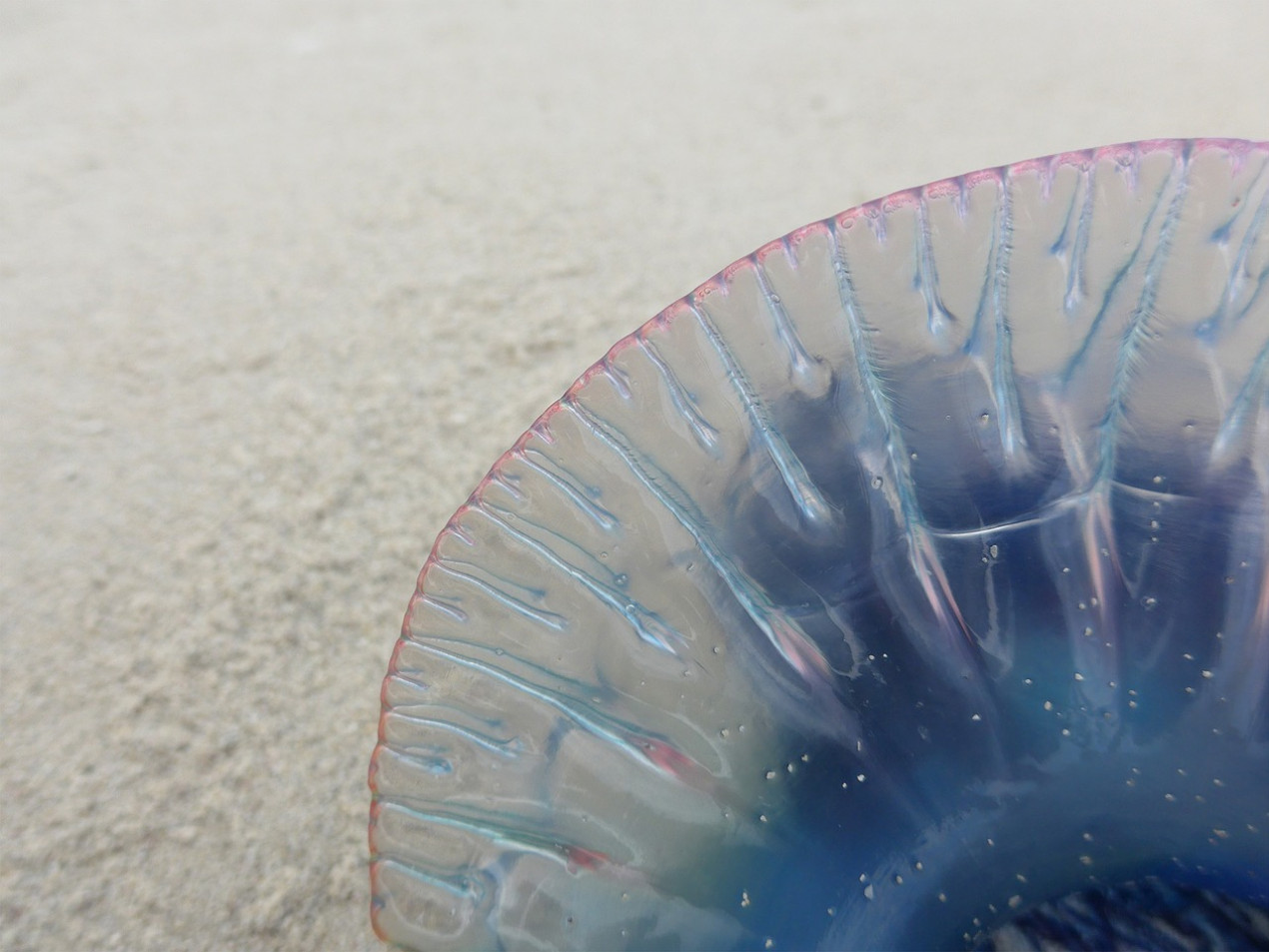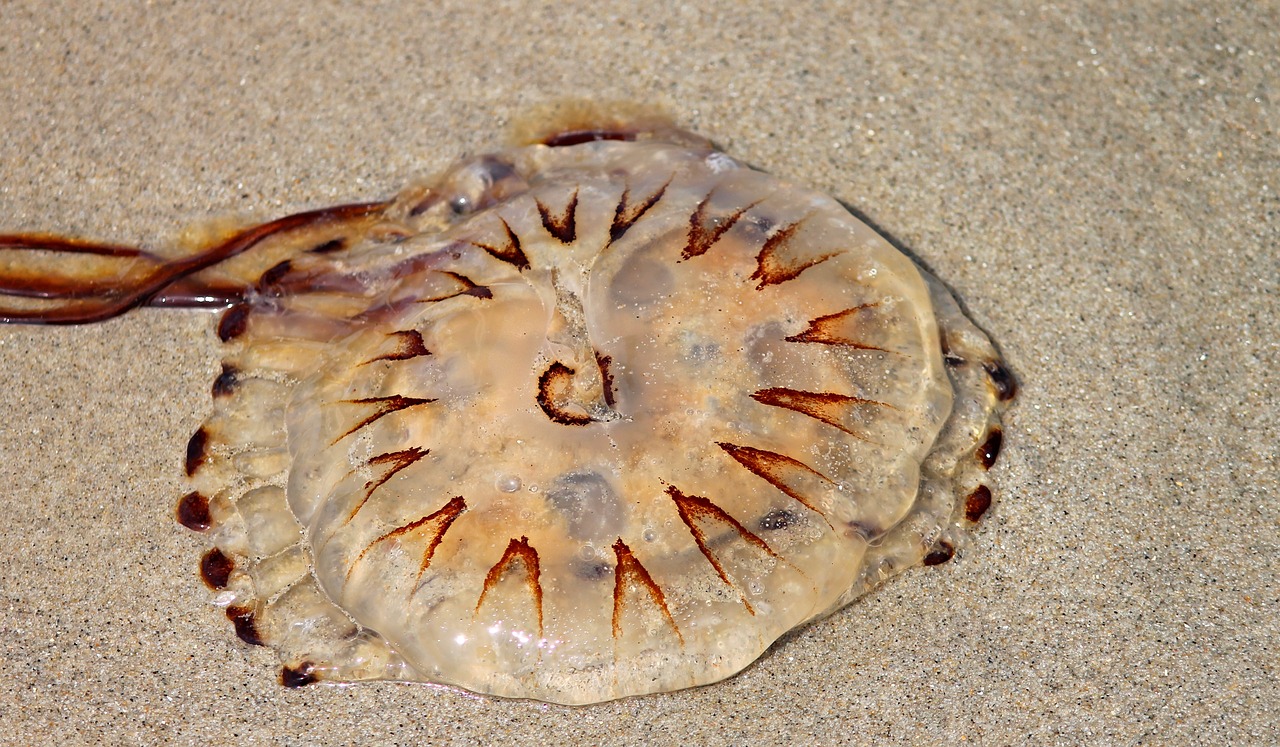Do you need help?

They may look striking but jellyfish can have a nasty sting and their tentacles can reach 30ft
Jellyfish washed up on the beach may not look too threatening.
But emergency vets are warning the slimy sea creatures can cause dogs a nasty injury – even when they’re dead.
Several pets have been treated at Vets Now clinics for jellyfish stings. In one case a Labrador was violently sick after being stung while out for a walk on a beach in Fife.
Another dog – a two-year-old spaniel – was left in pain after licking a jellyfish that had been washed up in Troon, Ayrshire. There has also been a number of jellyfish incidents involving dogs in the Merseyside area.

13 dangers to be aware of before taking your dog to the beach
Laura Playforth, Vets Now’s professional standards director, said dogs stung by jellyfish should be seen by a vet as quickly as possible.
“It’s no secret that dogs like to explore,” Laura added. “However, it’s important to keep a close eye on them if there’s likely to be jellyfish. Often lurking in shallow water or washed up on the beach, they can cause a very nasty sting.”
Most of the jellyfish found washed up on beaches are already dead but they still have the ability to sting for several weeks.
Laura added: “If your dog is stung by a jellyfish pull the remaining tentacles off with a stick or towel but never rub them and be careful not to touch them with your hands. Never rub the injured area on your dog with sand and always clean it with sea water rather than fresh water.
“If you suspect your dog has been stung you should contact your vet or, out of hours, your nearest Vets Now pet emergency clinic or 24/7 hospital straight away.”
The most common species of jellyfish in the UK are the lion’s mane, compass, barrel or root mouth, blue, moon, by-the-wind-sailor, Portuguese man-o-war and mauve stinger jellyfish. Some, including the lion’s mane, grow to the size of dustbin lids and have tentacles which can reach up to 30ft in length.
According to one study, it’s highly unlikely for dogs to die from jellyfish stings or from licking or swallowing jellyfish.
Researchers looked at 32 cases of dogs exposed to the creatures and found it took between two minutes and three hours for symptoms to show. The time to recovery ranged from two to 48 hours and all the dogs involved in the study recovered fully.
